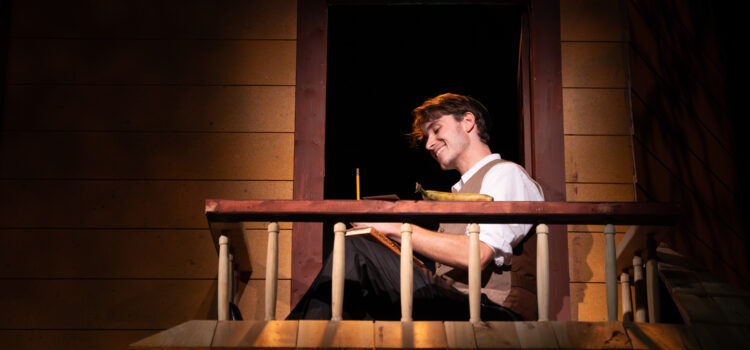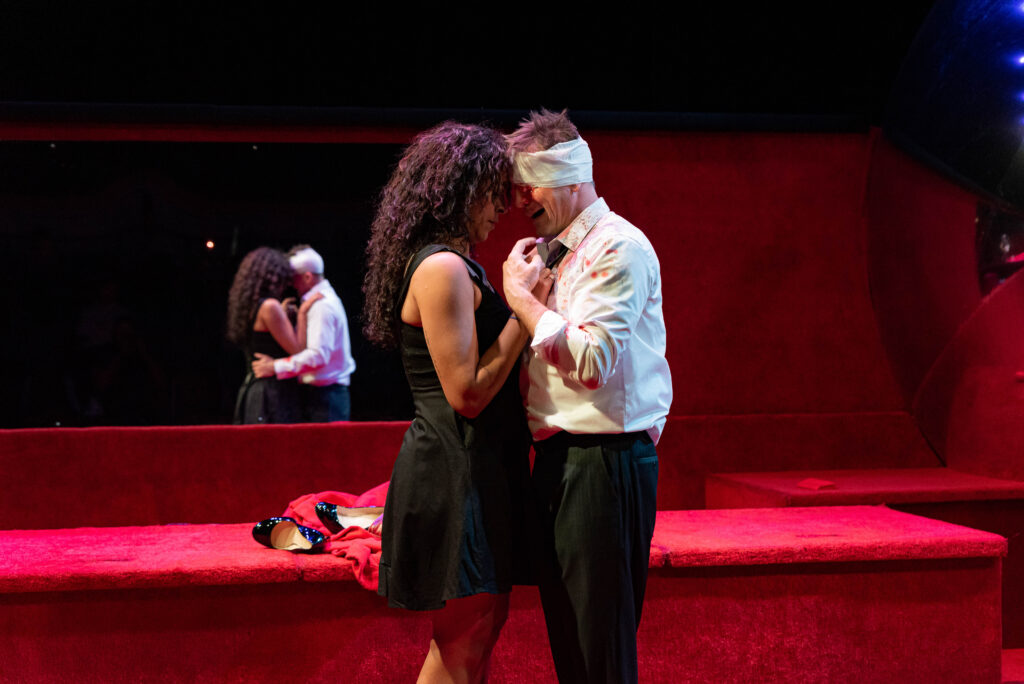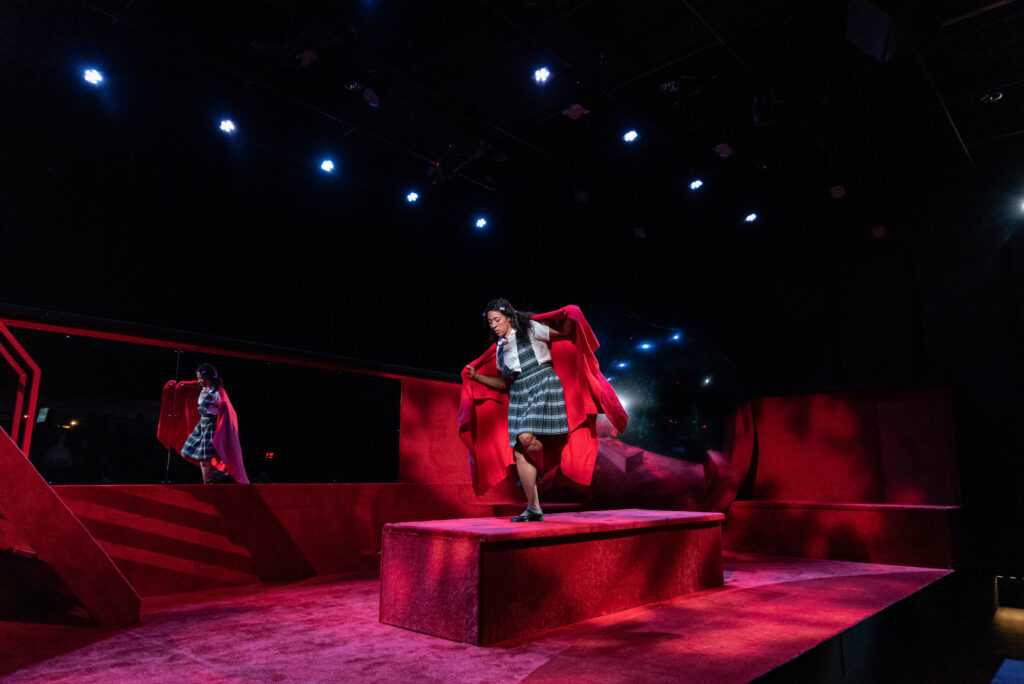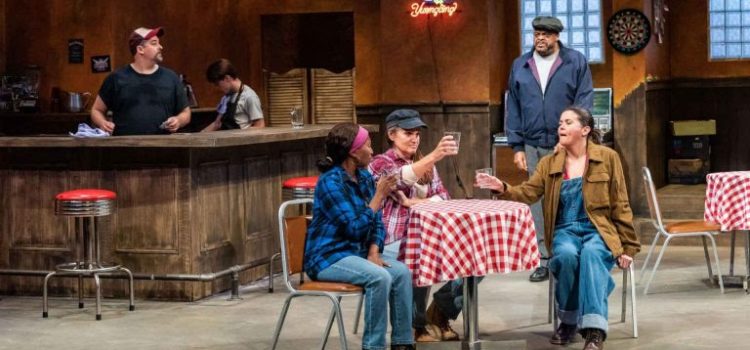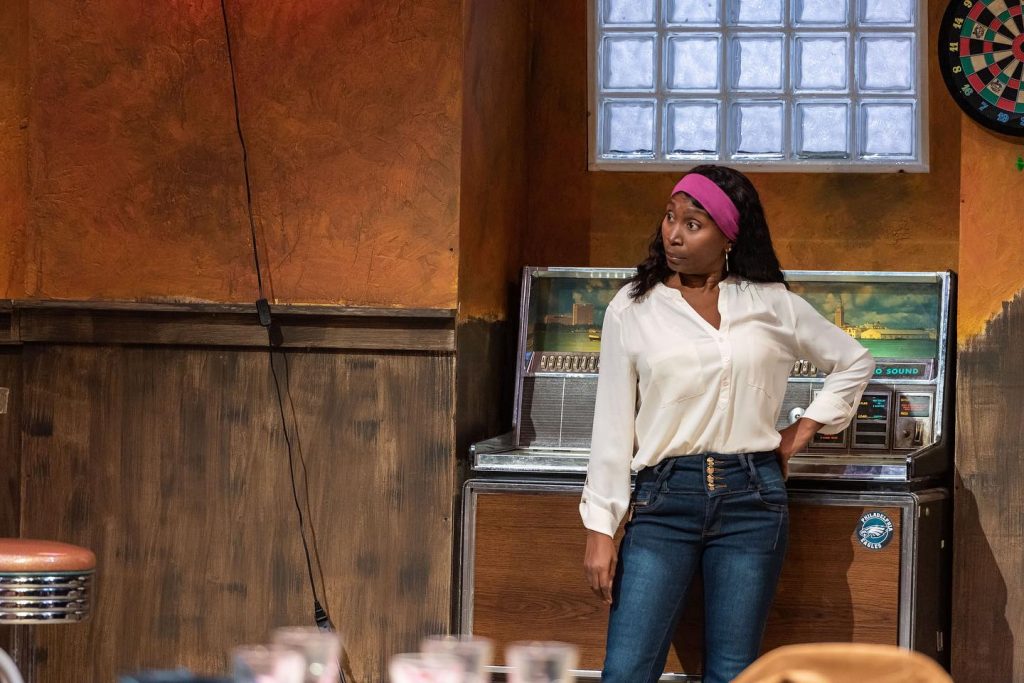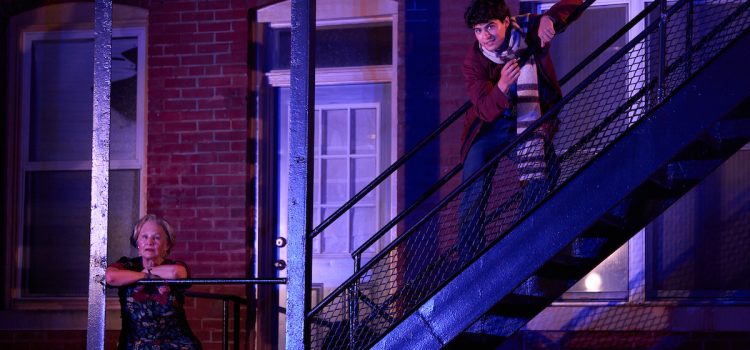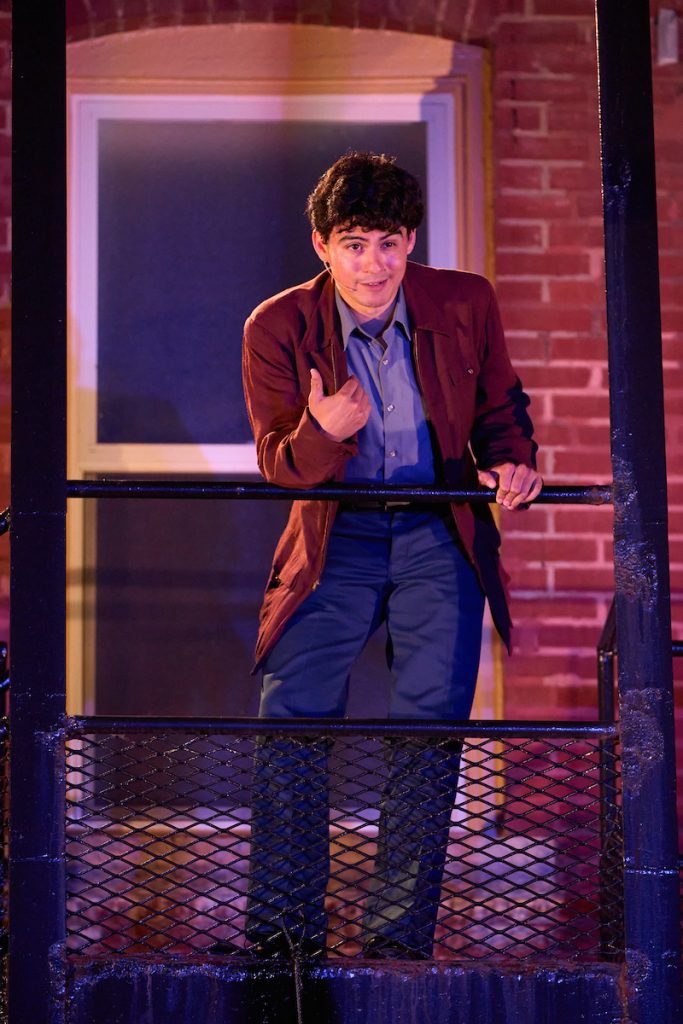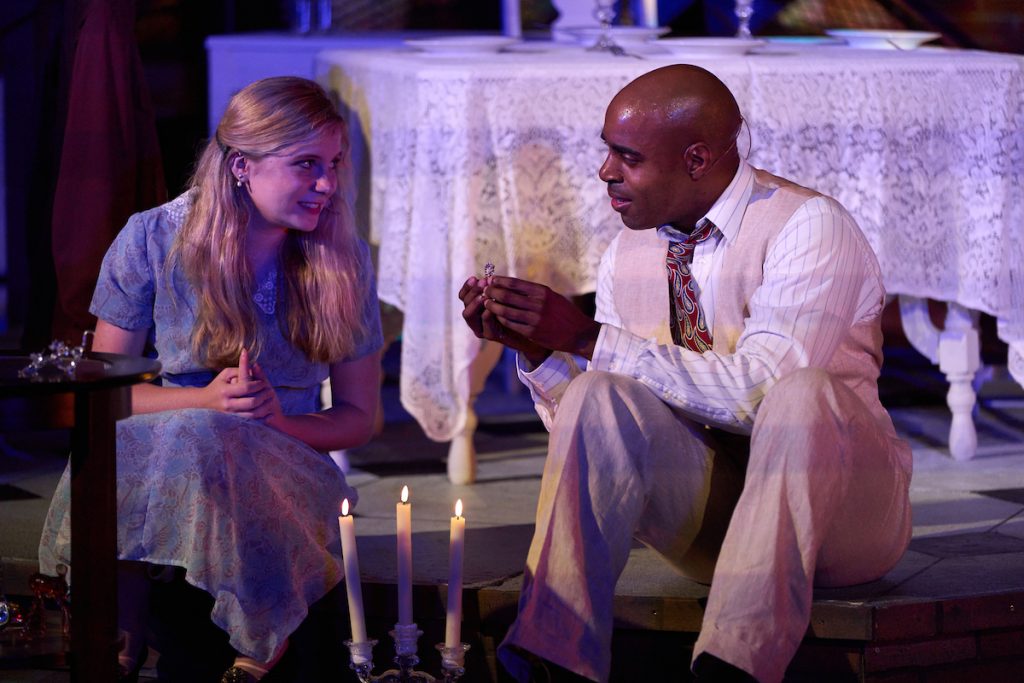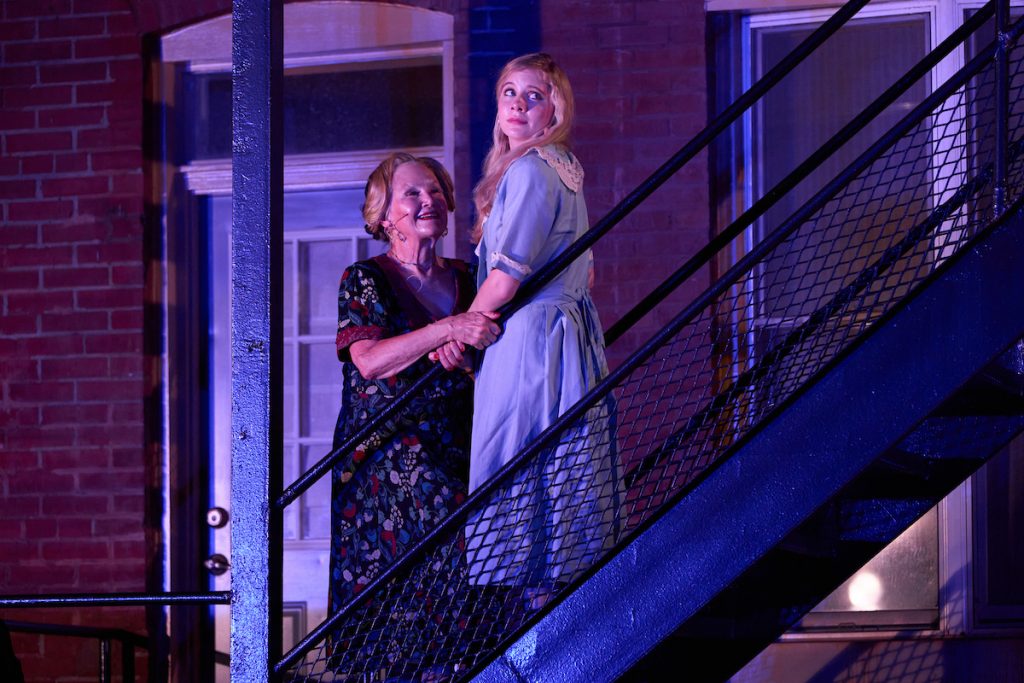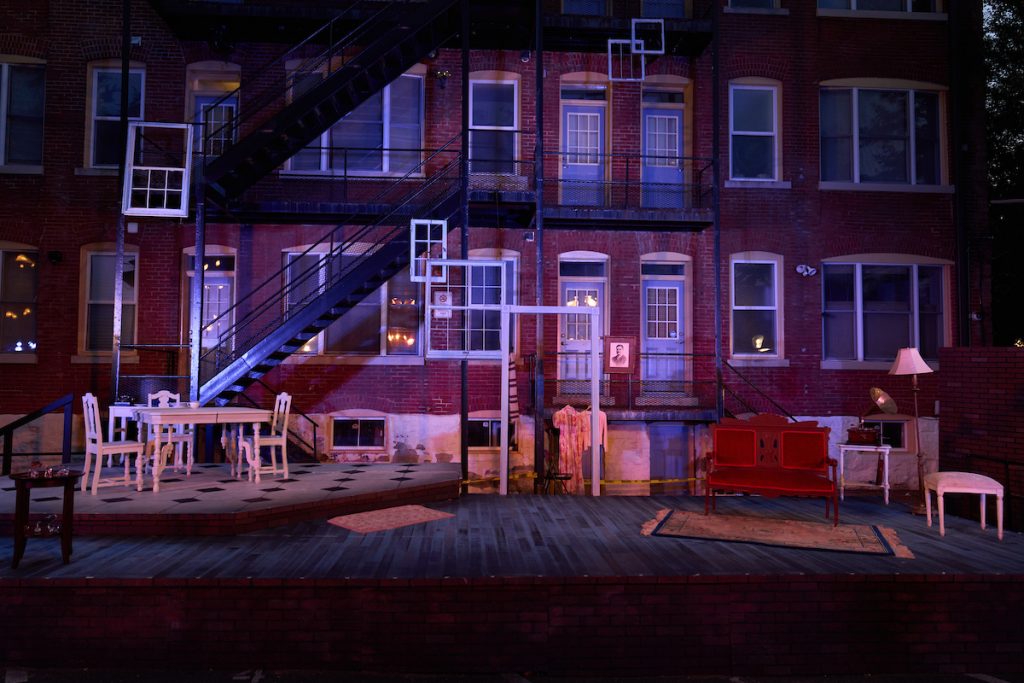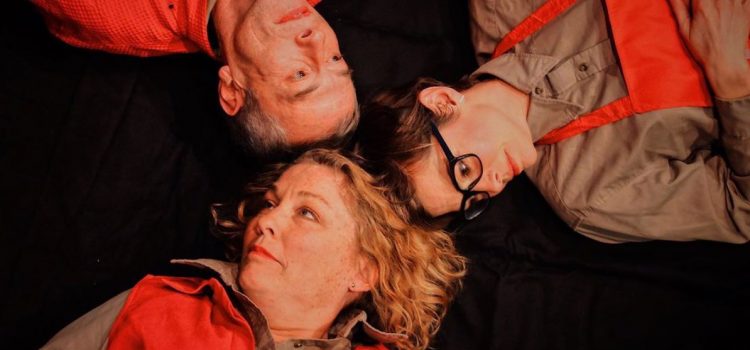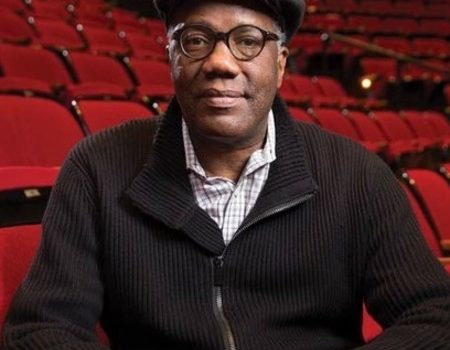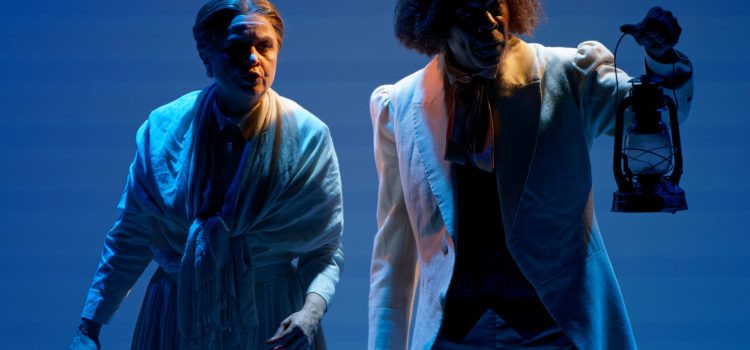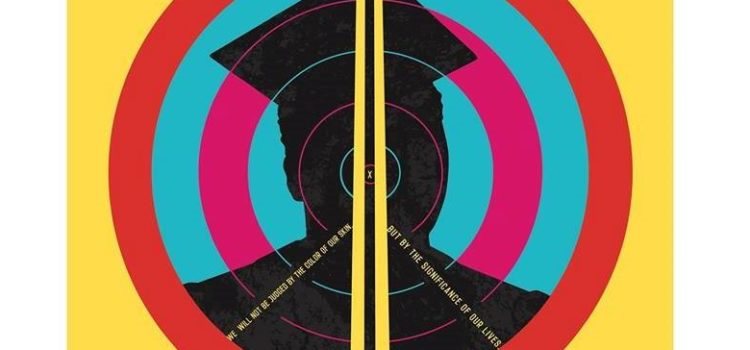By Lynn Venhaus
When Haskell Harelik, born Chatzkell Garehlik in Belarus, first steps off the boat in the port of Galveston, Texas, in 1909, actor Dustin Lane Petrillo beams with both joy and wonder.
That sense of liberty, breathing free on our teeming American shore, is palpable, and brings to mind how many other journeys of generations we know about, making “The Immigrant” a universal story that couldn’t be timelier.
This one is specific to Texas following the Russian Revolution. Pograms during those events spurred Haskell to emigrate as part of the Galveston Movement, as one of about 10,000 Eastern European Jews who arrived there 1907-14, arranged by a businessman to alleviate the overcrowding and poor living conditions on the lower east side of New York City.
This fresh New Jewish Theatre production, for the third time in its 25-year history, offers a warm, intimate connection that says as much about our common ground as humans as it does about hope and dreams.
Perceptively directed by Rebekah Scallet, this moving true story is awe-inspiring in its simplicity and eloquence, heart-tugging in its splendid character portrayals by an outstanding quartet, and masterly in its technical achievements.
Playwright Mark Harelik’s richly textured family drama, first produced in 1985, has an absorbing ebb and flow over eight decades, but mainly concentrates on his tempest-tossed grandfather’s early struggles to survive in a foreign land and then eventually succeed in living his American Dream.
Petrillo’s exceptional range as Haskell – and exemplary command of Yiddish — is first shown as a poor, tired, and parched peddler, selling bananas for a penny apiece when he nearly collapses from the heat in front of the Perry’s home in Hamilton, Texas. Wary of the stranger, banker Milton Perry lets him get water from their well, while his tender-hearted wife Ima wants to offer more help to the lost soul in their midst, and their paths will cross again.
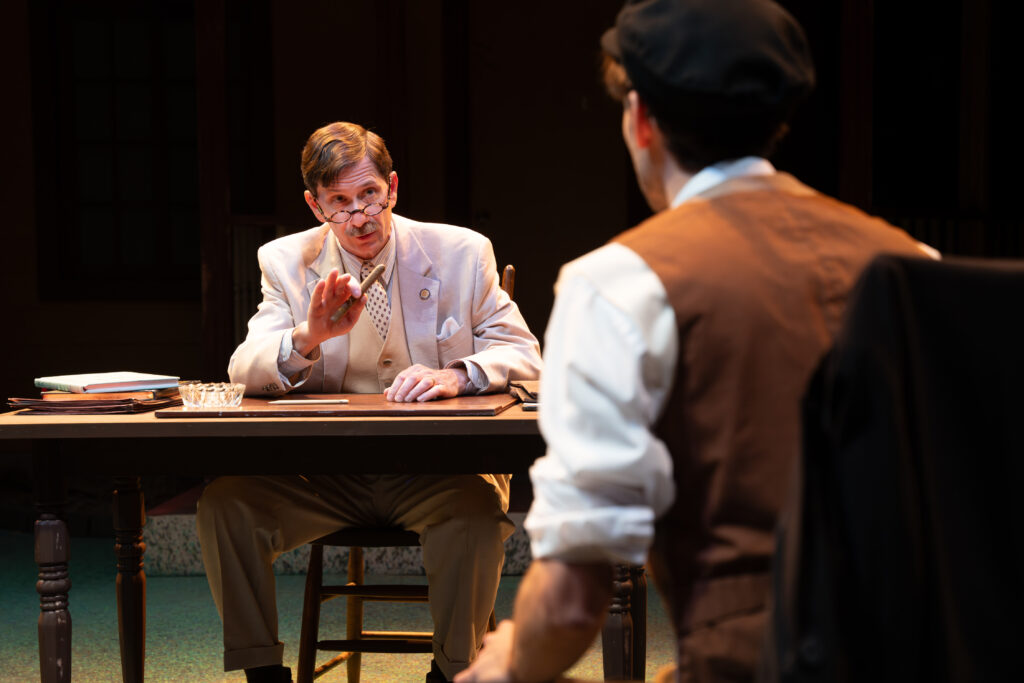
As the Perrys, David Wassilak and Mindy Shaw mirror the mindsets of the day, suspicious and fearful of “the other,” but are won over by Haskell’s charm and work ethic. When Milton sees Haskell’s papers and discovers he’s a Russian Jew, his prejudice flares up, but the young man is so earnest, he wins over the locals.
Because of Milton’s position, he’s willing to help set up Haskell in a more stable enterprise – a horse-drawn fruit and vegetable cart. That leads to a store in downtown Hamilton that lasted 78 years, until it closed in 1989.
Being a practicing Jew in a primarily Christian enclave, with many Southern Baptists, takes some adjustment, especially for Haskell’s wife Leah, who reunites here with reluctance. Bryn McLaughlin conveys her challenges as she desperately misses her community, but eventually assimilates to a good life as thriving, trustworthy merchants. They raise three boys, with the Perrys being a major part of their lives.
Wassilak and Shaw deliver finely tuned performances, with subtle rural central Texas accents, and together, in sync like an old married couple through the years, for full-bodied realism. Their chemistry is matched by Petrillo and McLaughlin so that you truly feel the couple’s bonds.
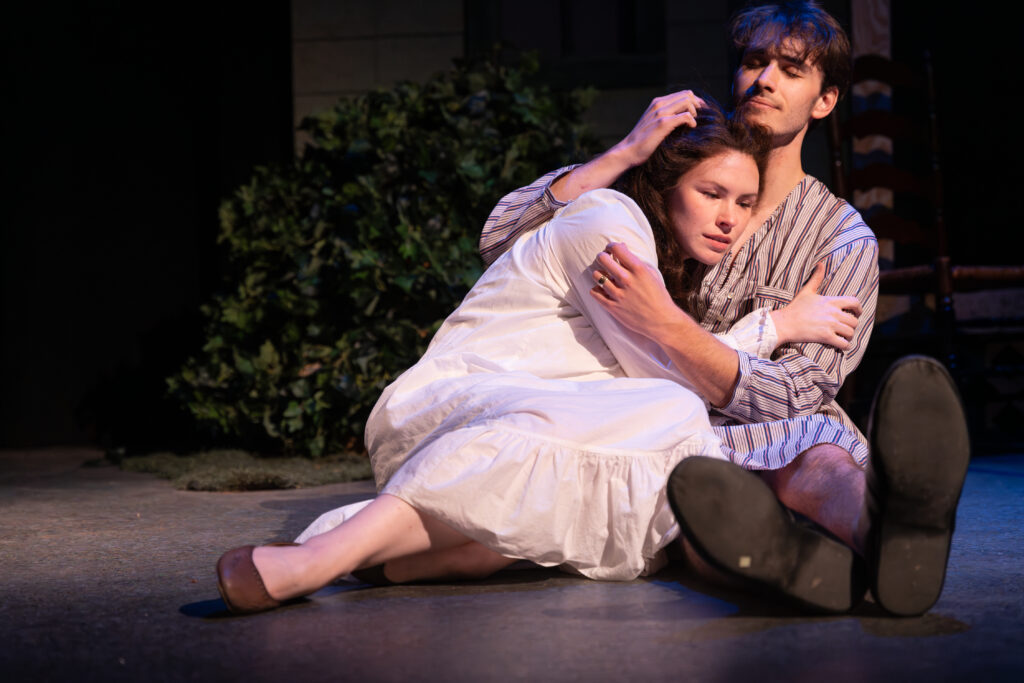
Differences about the growing European storm with Hitler in Germany and the reluctance of the U.S. to get involved in 1939 will cause friction between Milton and Haskell. There may be some artistic license, but it’s a wonderful story well-told. The minutia of daily living is superbly captured, all those little things that add up to making a life, no matter what era or what region. (I particularly enjoyed references to rabbit’s foot keychains, anklets and first time seeing an artichoke).
The creative team’s skills are first-rate, with stellar work from Kareem Deanes on sound –organically integrated with birds chirping, and retro background music – as well as his projections design. Each side of the theater has a screen where the audience can view information on Haskell’s journey and portraits of the Harelik family through the years that adds real sentimental moments to this deeply felt tale.
Scenic designer Rob Lippert’s meticulously detailed work on two home facades and landcaped trees and greenery creates a terrific setting to tell this story, placing the audience on each side for seamless action.
Stage Manager Nathan Wright, and Assistant Stage Manager Journee Carter keep the staging crisp and fluid.
Lighting designer Michael Sullivan’s warm illumination creates the feeling of home for both families.
Costume designer Michele Friedman Siler has astutely outfitted the women in changing skirt lengths and vintage styles while dressing the men in their appropriate professional attire, Haskell changing in stature through the years.
The play, co-conceived by Harelik, a professional actor, and Randal Myler, a writer, director, and producer, resonates beautifully with today’s audience.
New Jewish produced this play before, in 1999 and 2011, before I became part of the St. Louis Theater Circle as a founding member in 2012. This was a wise choice to mount it again.
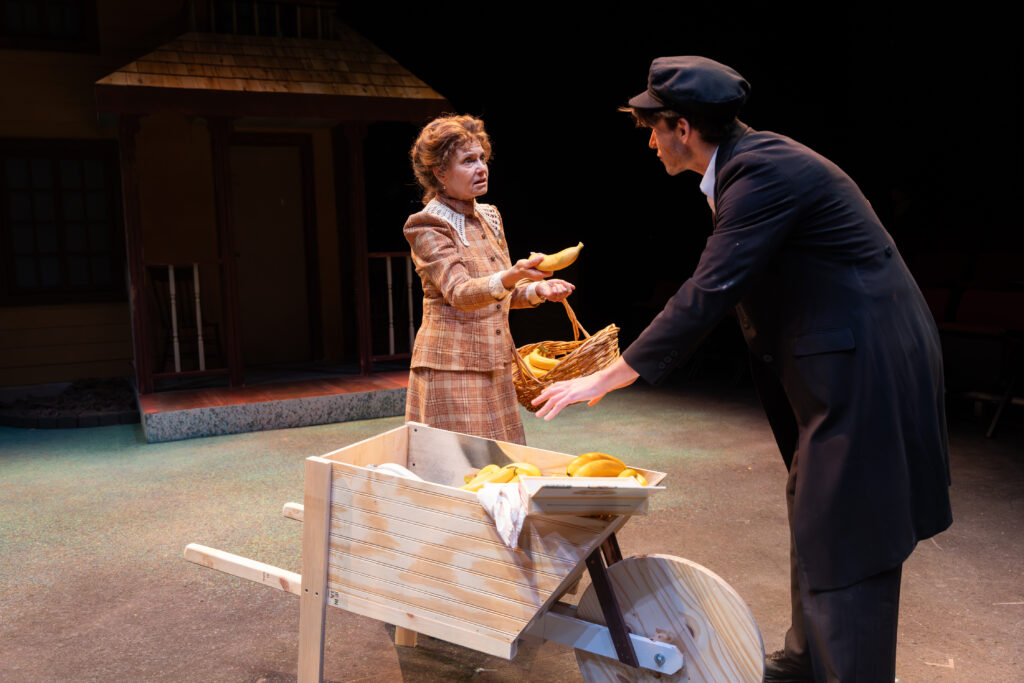
This is Scallet’s directorial debut, and it’s impressive. She is in her second season as artistic director of New Jewish, having moved here in 2020.
The dialect coaching by John Wright deserves mention, and so does the aesthetically pleasing natural wig designs by Dennis Milam Bensie.
“The Immigrant” is a compassionate example of shining our lamps on the golden door for those yearning for better lives. Indirectly, it also is infused with an urgency to not be passive about the current state of turmoil in the world.
The fact that local groups are hosting information sessions on how to help refugees in the Israel-HAMAS War during this play’s run, creates even more meaning. For more information, visit https://jccstl.com/resources-on-the-israel-hamas-war/.
“Give me your tired, your poor, your huddled masses yearning to breathe free, The wretched refuse of your teeming shore. Send these, the homeless, tempest-tossed to me, I lift my lamp beside the golden door!” – bronze plaque on The Statue of Liberty, 1883
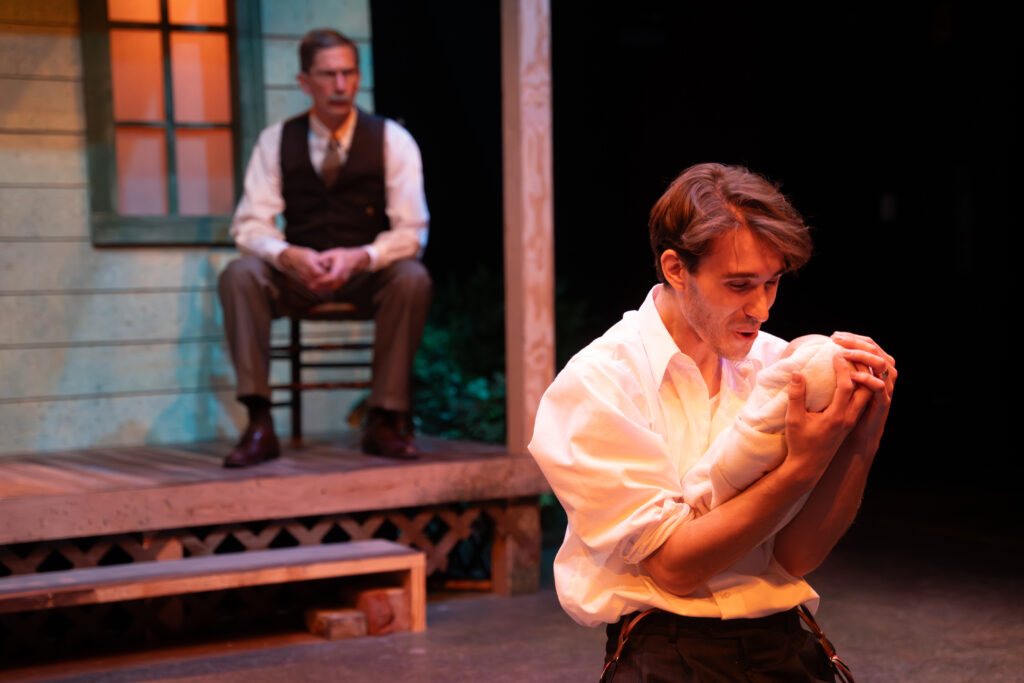
The New Jewish Theatre presents “The Immigrant” Thursdays at 7:30 p.m., Saturdays at 4 and 8 p.m. and Sundays at 2 p.m. Oct. 12 through Oct. 29. Performances take place at the Wool Studio Theatre in the SFC Performing Arts Center, 2 Millstone Campus Drive. The two-act play runs 2 hours, 21 minutes, and has a 15-minute intermission. For more information: newjewishtheatre.org or call 314-442-3283.
The New Jewish Theatre has coordinated with multiple local organizations who help immigrants to plan outreach events at or in coordination with this production to bring awareness to current issues facing immigrants and refugees in St. Louis. They include:
- A “needed item” drive in collaboration with The International Institute will take place throughout the showings.
- On October 21, following the 4 pm performance, there will be a discussion panel featuring members of the Central Reform Congregation Resettlement Chavurah.
- On October 22, following the 2 pm performance, there will be a discussion featuring members of the Shaare Emeth Congregation Resettlement Group.
- Finally, a Welcome Neighbor dinner will take place at the J between the 4pm and 8pm performances on October 28.
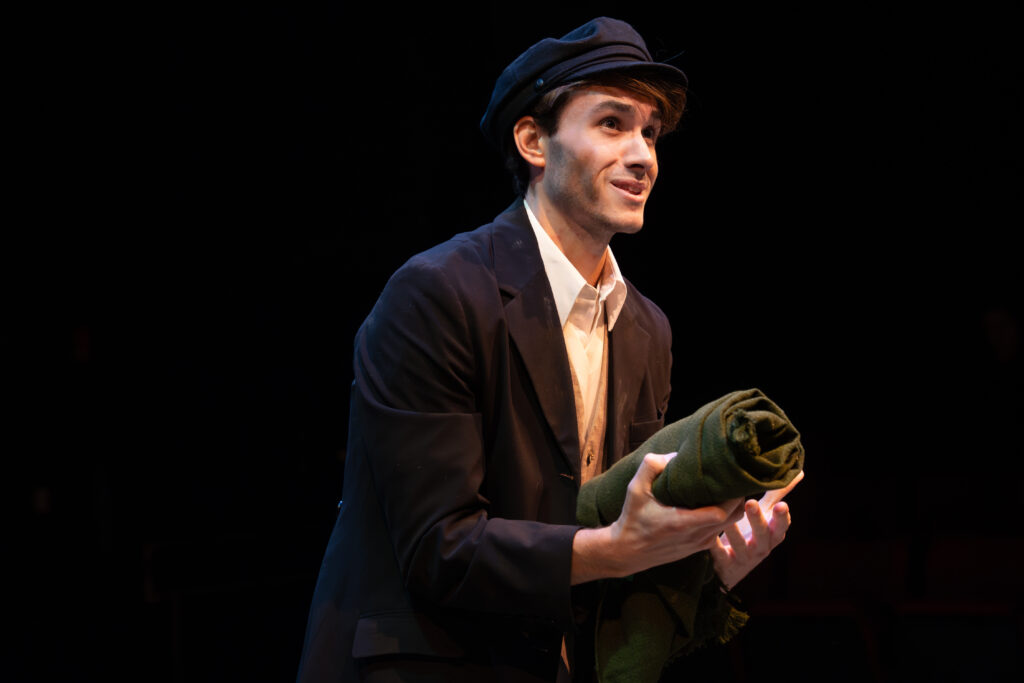

Lynn (Zipfel) Venhaus has had a continuous byline in St. Louis metro region publications since 1978. She writes features and news for Belleville News-Democrat and contributes to St. Louis magazine and other publications.
She is a Rotten Tomatoes-approved film critic, currently reviews films for Webster-Kirkwood Times and KTRS Radio, covers entertainment for PopLifeSTL.com and co-hosts podcast PopLifeSTL.com…Presents.
She is a member of Critics Choice Association, where she serves on the women’s and marketing committees; Alliance of Women Film Journalists; and on the board of the St. Louis Film Critics Association. She is a founding and board member of the St. Louis Theater Circle.
She is retired from teaching journalism/media as an adjunct college instructor.

